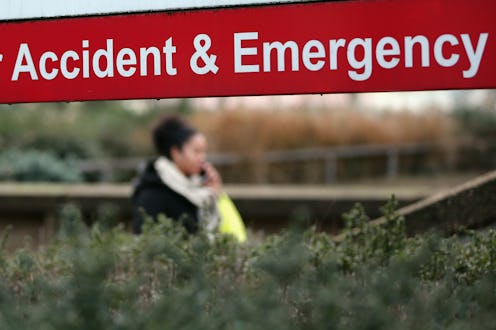News
White Supremacists Ask Interns To Treat Them Instead Of An Asian-American Doctor

For some medical professionals, it seems, the antics of white supremacists are nothing new. In the wake of last weekend's uprising in Charlottesville, Virginia, a doctor from the other side of the country shared her own experience with so-called "white nationalists" in Oregon. Dr. Esther Choo said white supremacists routinely refuse care from her, opting instead to be treated by less experienced hospital interns.
According to CNN, Choo, who is Asian-American, first shared her experience on Twitter last Sunday, the day after a display of white nationalism in Charlottesville turned deadly. Choo is a faculty member in the department of emergency medicine at the Oregon Health & Science University's School of Medicine, located in Portland, Oregon. Her response to the Charlottesville incident appeared in a series of more than 10 tweets from her public account.
"We've got a lot of white nationalists in Oregon," she began. "So a few times a year, a patient in the ER refuses treatment from me because of my race." Choo continued, tweeting that rather than show anger toward the patient, she simply explains that she is qualified to treat him or her, and "the alternative is an intern."
And they invariably pick the intern, as long as they are white. Or they leave.
Choo's experience isn't an isolated case. In 2013, CBS News called the issue of patients refusing care based on a medical professional's race "an open secret" within the profession. CBS News pointed specifically to an instance where a man with a swastika tattoo refused to allow African-American nurses from caring for his newborn.
Refusing care seems to be a generally accepted right of patients. In an article published in the Journal of Emergency Medical Services in 2015, Dr. William Selde of the Wyoming Medical Center wrote that patients are allowed to refuse care, regardless of their reasoning, as long as they understand the risk involved in doing so. Selde did not specifically analyze the issue of race-based discrimination.
Patients are allowed to refuse care as long as they understand their particular medical situation and the potential risk and benefit they’re assuming. The reason for the refusal is not as important as the process by which the decision to refuse is made.
For her part, Choo seemed to understand and accept that principle, but that doesn't make discrimination any easier to face. As the country continues to grapple with this serious issue, racial tension seems to permeate even potential life-or-death situations.
Removing statues is one thing, but removing the barriers between people may take much more work.